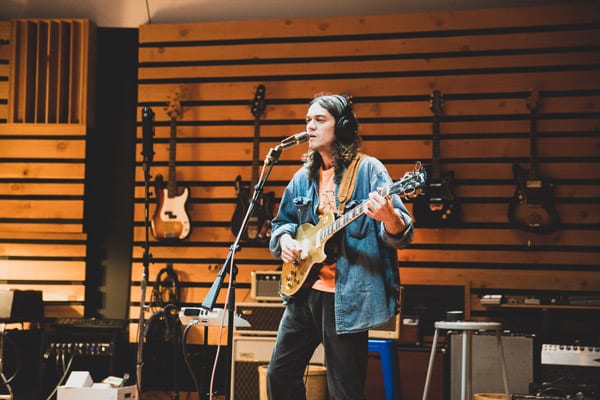
Photos by Kelsey Doyle
Los Angeles-based Americana jam rockers Pacific Range have released its debut album, a double record, titled “High Upon The Mountain,” via Curation Records. Jon Siembieda from Tahoe Onstage recently interviewed the entire band to discuss a wide range of musical topics. Pacific Range consists of Seamus Turner (guitar, vocals), Stewart Forgey (guitar, keyboards, vocals), Cameron Wehrle (bass) and Nate Ward (drums).
This album is a double record. Heck of a feat for a first release. Being familiar with the band already, it seems like the first record is more “songs” and the second record is more “songs that jam.” What was the methodology with sequencing? It is a very underrated art form with album production.
Forgey: Originally, we had a different song sequence worked out for the album. Once we started working with Brent (Rademaker of Curation Records) and vinyl became a more realistic possibility, he had the idea to change the sequencing to better suit a double vinyl. Sequencing is a really important aspect of making a record to us and it was good to have outside perspective from someone who knows the songs. I think the methodology behind the sequencing was keeping the more accessible songs at the beginning and the longer jams toward the end, which really makes sense to me from both a listening and marketing perspective. Each side of the vinyl is like its own little album.
This album was produced by Dan Horne, and you also had some sessions produced by Dave Schools. What did you learn from each of them with their process on how to record and bring out the most in the songs?
Ward: Dan takes more of a hands-off-and-simple approach. We’d come to him with a song, tell him our ideas for the arrangement, and he would dial in a solid headphone mix. That would usually get us grooving and from there he’d make tweaks and suggestions. He also had a killer old drum machine that we used in place of a metronome when needed.
I think Dan really taught us how to relax in the studio, go with the flow and not dwell on mistakes or imperfections. Those are what make it fun and human.
I think Dave definitely takes a more experimental approach and pushes bands to explore uncharted waters. The first day he showed up with a bunch of cool pedals and gear, and even brought a 1960s jazz bass for Cameron to try. He’s a super generous man, eager to teach the youth and pass on his wisdom.
He worked with us individually to try new ideas and sounds and conducted us as a group as well. For instance, on one longer, improvised-jam, he had us add another part to edit in. Dave stood in the center and pointed at Stew to build things up, then Cam, then Seamus and finally myself. After bringing the jam to a boil, he had us take it back down and dissolve it into nothingness.
One trick that he taught me for playing without a metronome is to loop the groove. Just keep playing it over and over and then hit record once its locked in. You can always go back and punch in a lead in fill.
What is your songwriting process?
Turner: I feel like with every song there is a different muse or inspiration that has to be entwined within your life. Sometimes its inspired by a melody on the guitar or by something happening around you. When that muse speaks to you, it’s important to write down that thought or else it will slip away into the dark corner of the mind where forgetfulness lurks. When there are words written and there is a nice rhythm, usually we go over it as a band and everyone throws their flavor into the mix.
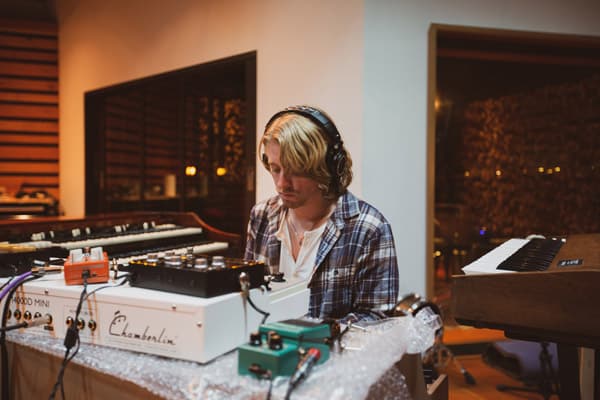
Obligatory gear nerd question: Any insights into what was used on this album, cool guitars, special amps, drum kit with a story, unusual pedals, fun stories on how you arrived at tone on a particular track?
Forgey: I think the key to making this album with Dan was not having a ton of gear in front of us, but rather just having the right gear (a good lesson we learned). Almost all of Dan’s recording gear is vintage or remakes of vintage models. We recorded directly to tape and edited in Pro Tools. We mixed each song the analog way, directly on Dan’s old Yamaha console. He used almost no plug ins and the real plate reverb he has in his studio has some real magic in it. Every song was mixed right after it was recorded and once we moved on we couldn’t go back and change the mix. After each mix was done, we ran it back through Dan’s Ampex tape machine to give it the final glue. Overall, the recording process was definitely a less is more approach with an emphasis on capturing the right initial sound.
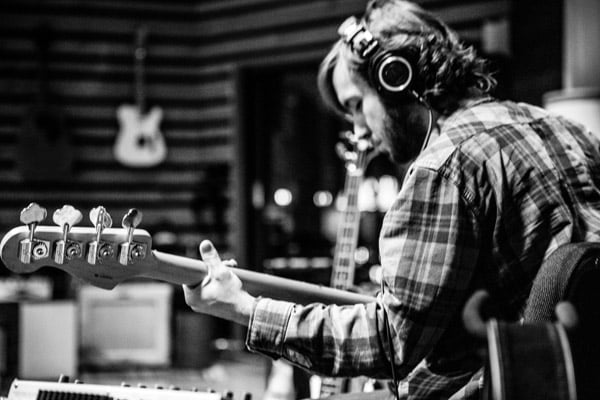
I hear a lot of influences: Dickey Betts-style Allman Brothers Band, The Grateful Dead and Cosmic Americana ala J.J. Cale. What did you guys grow up listening to? What shaped your musical taste? What are you into right now?
Wehrle : We are collectively influenced by a variety of artists spanning many genres and generations. The Grateful Dead and Allman Brothers are big influences that our parents introduced us to. We listen to a lot of soul music like Otis Redding, The Meters are masters of time and funk, classic Americana, Pink Floyd, rhythms from all over the world, jazz and much more. More contemporary influences are artists pushing the envelope like Thundercat and Kamasi Washington of Brainfeeder Records, we grew up watching at Low End Theory in L.A. Mapache and Circles Around The Sun are both dear friends and our favorite bands today.
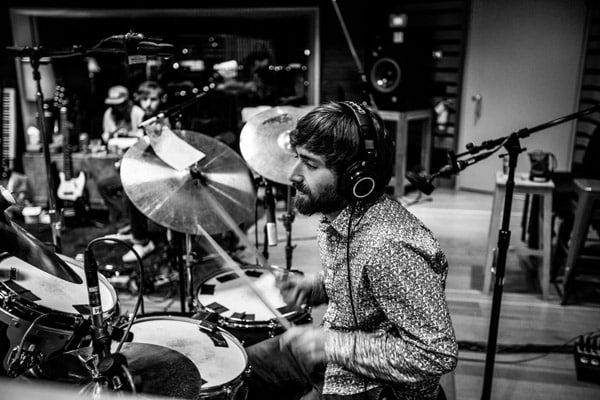
This album is the debut release on a new label, Curation Records. What made you choose Curation (or what made them choose you) and how do you feel working with Curation is different than other options?
Ward: I remember going to Grand Ole Echo with Cameron one time and seeing Brent. We’d met several times before and we knew him through Clay and Sam (of Mapache). He was looking for a new band for his label and told us he was interested.
At the time we had already recorded our album and we’re looking for a way to release it. We knew we wanted vinyl, which we couldn’t afford, and we needed a way to get the word out.
Brent is a hard-working guy and knows everyone from his years of playing and traveling. He always goes out of his way to make conversation and mingle at shows.
Curation pays close attention to details such as the packaging and materials used on our vinyl. They go with local resources when possible and keep things grassroots.
What’s next for Pacific Range after the coronavirus clears? Any new songs in the works?
Turner: The coronavirus has really taught us a valuable lesson in being thankful for all you have. It showed us not to take anything for granted and I’m hopeful the world will be feeling better on all fronts. After this time, I hope everyone is ready for some more Pacific Range because we will be getting back on the road with some new songs as well.
For more info on Pacific Range and their new album, go to www.pacificrangeband.com and www.curationrecords.com.
-Jon Siembieda

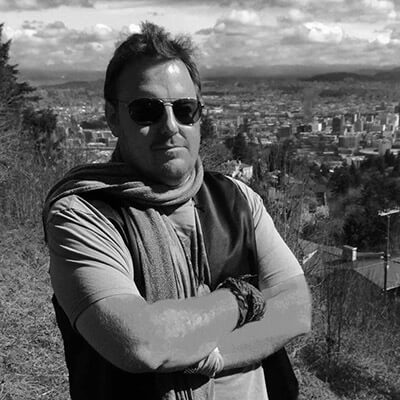
One Response
I love seeing how this band had progressed! I would often run into Shamus Turner here in So Cal, at lunchtimes in Glendale at Whole Foods! I connected with Shamus there a number of times….chatting about music and California. Such a cool young spirited chap!